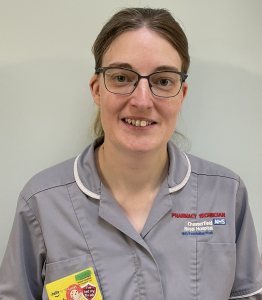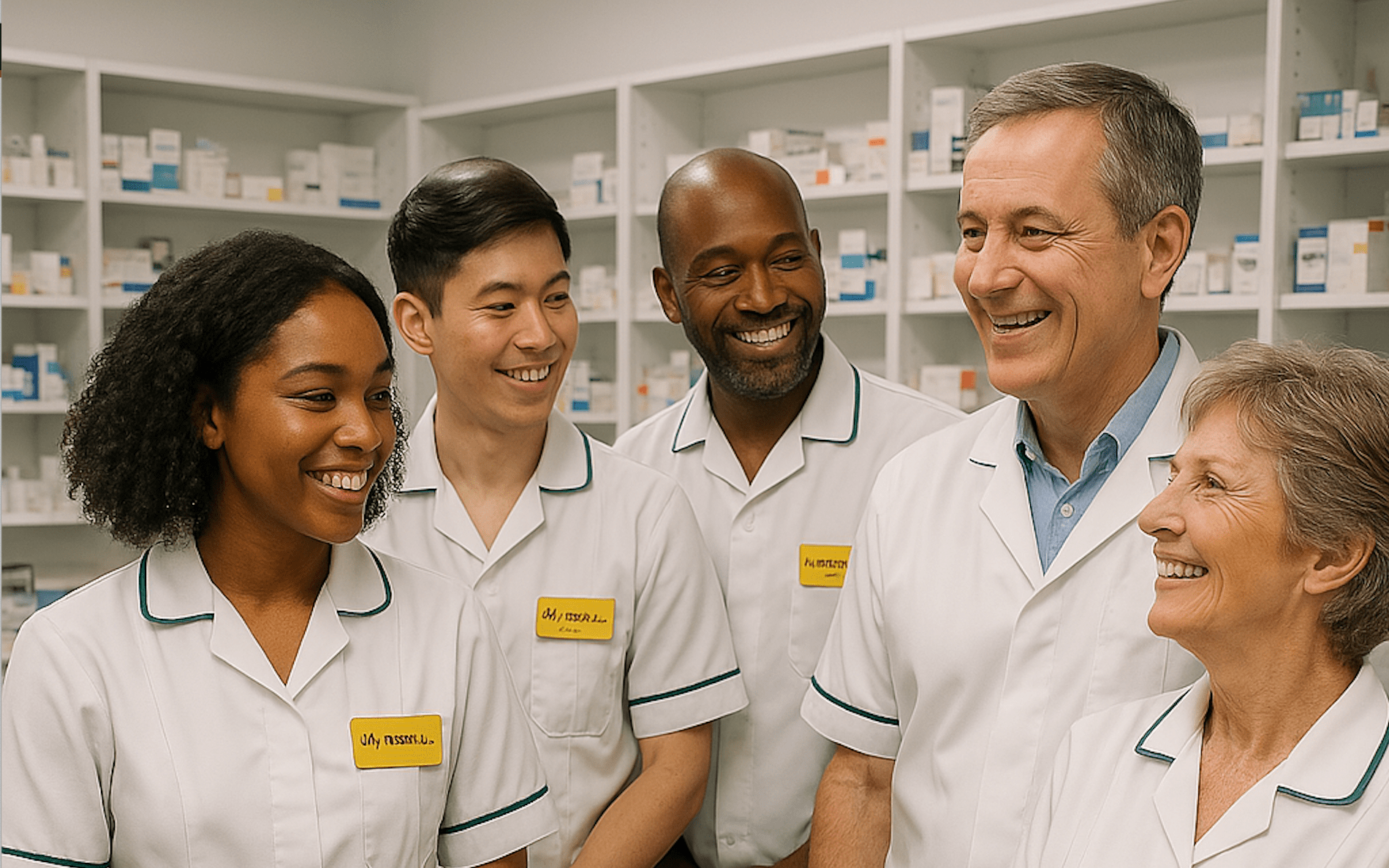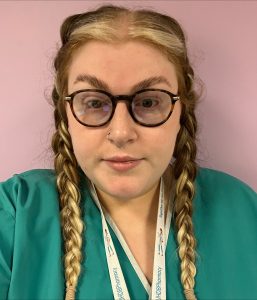The pharmacy team works in all sectors of healthcare including hospitals, GP surgeries and community pharmacy (high street chemists).
Pharmacy within Derby and Derbyshire offers varied and fulfilling roles at whatever stage of you career you are at.
-
The pharmacy workforce is made up of:
- Pharmacists are registered healthcare professionals who have completed an undergraduate four-year masters’ degree in pharmacy (MPharm) and a year of practice-based training before being licensed to practice by the General Pharmaceutical Council (GPhC). They work in all sectors of pharmacy and many enhance their clinical skills by completing post-graduate training. Future pharmacists will achieve an accreditation to be a prescriber.
- Pharmacy technician roles are registered healthcare professionals who have completed a GPhC approved training programme. They learn ‘on the job’ and complete their training as part of a two-year training programme, usually an apprenticeship. Once qualified, they are licenced to practice by the GPhC. They work in all sectors of pharmacy and have varied roles from supplying and managing medicines, manufacturing medicines, providing care to patients on wards, in community pharmacy and in GP surgeries. The titles of Pharmacist and Pharmacy Technician are protected in law and only those registered with the GPhC can use these titles.
- Pharmacy support staff roles are regulated roles that require a minimum level of on-the-job and educational training. They assist in the provision of pharmacy services particularly in medicines procurement and dispensing and supply. They have varied roles and can also be known as medicine counter assistants, assistant technical officers and dispensers. They all need to complete minimum training as required by the GPhC.
- Associated Pharmacy roles – not all roles require pharmacy qualifications. Pharmacy Quality Assurance / Quality Control (QA/QC) departments have roles which require qualifications in chemistry or biology, these positions include pharmacy releasing offices or QA managers. Large pharmacy practices may require non-clinical pharmacy managers or reception staff.
Training and development
-

Leah Parker, pharmacy technician How long have you been involved in pharmacy and how did you find yourself in this role?
l’ve been in pharmacy since joining Lloyds Pharmacy as a sales assistant aged 18 in 2005. It was the only full-time job I could find when I finished college. I spent four years in community pharmacy before applying for a role as a student pharmacy technician at Gloucestershire Royal Hospital in 2009 and then qualifying as a fully-fledged pharmacy technician two years later in 2011.
I’ve spent the last 12 years moving around the country with my husband and have worked in many different hospitals and roles before finding myself in this exciting new role in January 2020.
Please could you give a brief description of your role?
My role is to administer medication in the busy emergency department at Chesterfield Royal Hospital. I administer all kinds of medications to patients. I am also trained in venepuncture and cannulating, and I have completed the health care assistants’ course as well so I can take patient observations and assist with patient care if needed.
What does a typical day look like?
There are no typical days in ED! But that’s what I enjoy about the role. Every day is different and I never know what is going to happen on a day-to-day basis. I cover all areas of ED, from ambulatory patients (fit to sit) to resus (our most critically unwell patients). I use our medication administration system to move around the department and go where I’m needed to administer meds. I’m also asked by nurses to assist in areas as well. I also do a lot of training of student nurses and our newly qualified nurses, as well as re-training if nurses need extra help in medication administration.
What is the most rewarding / challenging aspect of your role?
The most rewarding aspect is being able to help my patients directly and be in a patient facing role, which few pharmacy jobs are. I also enjoy being able to help nurses improve their medication knowledge and improve their practice as well.
The most challenging is when, despite all our interventions, patients do decline and sometimes pass away. That’s always difficult and not something I’d ever had to deal with before this role. But we work together as an ED team and an ED family to get through the difficult cases together.
How do you feel you have benefited from learning and working within Derbyshire?
This role only exists in a few places around the country and I feel very lucky that Chesterfield Royal brought the role into existence in their ED and that I was chosen to fulfil it. They’ve allowed me to further my learning and I work with a fantastic team of people.







